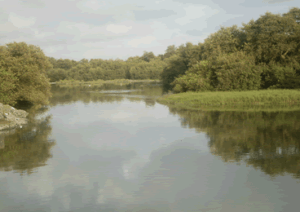Clashes between Keta lagoon indigenes and salt company gains international attention
 The unending, sometimes deadly clashes involving Keta Lagoon indigenes and Seven Seas Salt Company located at Adina, in the Ketu South Municipality, has attracted international attention.
The unending, sometimes deadly clashes involving Keta Lagoon indigenes and Seven Seas Salt Company located at Adina, in the Ketu South Municipality, has attracted international attention.
The University of the Western Cape (UWC), South Africa, is currently hosting a short course on “The Political Economy of Land Governance in Africa”, here in Ghana, the Keta Lagoon debacle forming the case study.
It was in collaboration with the University of Ghana, Legon and Kwame Nkrumah University of Science and Technology (KNUST), through the Network of Excellence on Land Governance in Africa (NELGA), a continent-wide grouping involving the African Union, UN Economic Commission for Africa, African Development Bank and the African Land Policy Center – ALPC.
In all, 41 students, from the academia, civil society, government and business from 16 African countries, all sponsored, were taking part in the one weekend residential short course.
Professor Ruth Hull and Professor Moenieba Isaacs, both leading experts in land, marine and land resource governance at UWC’s Institute for Poverty, Land and Agrarian Studies (PLASS), are course coordinators and presenters.
The students and experts have since Wednesday visited the Keta Lagoon area and interacted with about 300 indigenous salt winners fighting the Salt Company’s presence at Agbozume-Dogbekope.
Prof. Hull, said UWC and NELGA heard of the Keta Lagoon issue and “hope the study would improve on land governance and resource management and stop further eroding of the livelihood of the area communities”.
She said the Ghana course, third of its kind, after Tanzania and South Africa, was to expand participants’ capacity on the social, economic and political dimensions of land governance, to enable them effect change in their countries for improved general land governance in Africa.
She said participants would also engage in poverty- oriented, conflict and gender-sensitive research with Professors from the Institute of African Studies, Ghana, University of Bamako, Mali and Third World Network, Ghana.
Prof. Isaacs on her part said the interactive course also involves pre-colonial and colonial histories of land rights in Africa and diverse land tenure systems it produced, best practices in land policy and land law in Africa, land administration, land corruption and land related conflicts and women’s land rights.
She said participants would be introduced to African and global land policy guidelines, explore how policy makers have, and can draw on such frameworks to craft more robust land policy in support of broad-based development in Africa.
Sir John Mark Kwame Worclachie, Secretary, Ketu-Keta Lagoon Area Concerned Citizens and Salt Winners Association of Ghana (KKLACCWA), said their livelihood activities mainly fishing, salt winning and marketing and farming were affected, while coconut groves were dying as the company uses underground water instead of sea water for production, causing also domestic wells drying up or becoming coloured, vowing they would fight on.
Mr. Solomon Kwawukume, Executive Director, Center for Natural and Environmental Management, an NGO, denounced the conduct of both Government and the investor and the communities to form a strong Cooperative to fight for their rights.
Group interactions were held with the communities to grasp the nature of their problems and their expectations.
Source: GNA
